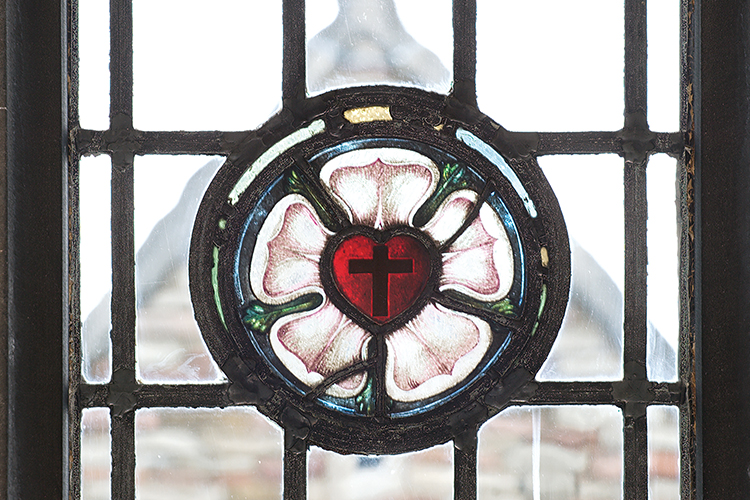
Concordia Seminary Newsroom
The Reformation’s Turn Toward the World

By Charles Arand
One perception that non-Christians often have of Christians is that we are more concerned about the world to come (and making sure we get into it!) than we are concerned about this present world and how we live within it for the sake of all who inhabit it. Rightly or wrongly, that is a fairly common perception.
But it is precisely here that the commemoration of the 500th anniversary of the Reformation can help us. By restoring us to the God as our Creator, Christ has restored us to His creation. Faith in Christ now sees this creation as the expression of God’s loving heart. What does this mean?
Luther writes:
Now if I believe in God’s Son and bear in mind that He became man, all creatures will appear a hundred times more beautiful to me than before. Then I will properly appreciate the sun, the moon, the stars, trees, apples, pears, as I reflect that He is Lord over and the center of all things.
In Luther’s day, many regarded everyday life as ordinary and mundane. Nothing exciting or unusual ever happens. Why don’t we see miracles like we did in the Bible? Luther laments:
[Most people] are so accustomed to [the works of God in nature]; they are as permeated with them as an old house is with smoke; they use them and wallow around in them like a sow in an oats sack. Oh, they say, is it so marvelous that the sun shines? That fire heats? That water contains fish? That hens lay eggs? That the earth yields grain? That a cow bears calves? That a woman gives birth to children? Why, this happens every day! You dear dolt Hans, must it be insignificant because it happens daily? … If God created all other women and children of bone, as He did Eve, and but one woman were able to bear children, I maintain that the whole world, kings and lords, would worship her as a divinity. But now that every woman is fruitful, it passes for nothing. … Is it not vexing to see the accursed ingratitude and blindness of mankind?
Not only does the Gospel enable us to see this world and our lives in this world as God’s good gift — and thus anything but ordinary — but as Christians, we see this world as witness to the hope that lies before us. Luther expresses it poetically in a Table Talk:
[We] are presently living in the dawn of the age to come [future life]; for we are beginning to acquire once again a knowledge of the creatures that we lost through Adam’s fall. Now we can look at the creatures much more correctly. … we begin, by the grace of God, to recognize his majestic works and wonders even within the little blossoms, when we reflect how mighty and good God is. Therefore we praise and glorify him and thank him. We recognize the might of his Word in his creatures, how powerful it is. For he spoke and it came to be [Ps 33:9] —even through a peach stone. Even though its outer shell is very hard, in its own proper time it must open up because of its soft center which is inside.
The dawn is a period of twilight when the sun is rising but remains just below the horizon. The light of dawn shines up into the sky where it is refracted and scattered by the atmosphere down onto the earth. At the same time, shadows still lie over the earth even as the light grows brighter. But the dawn portends the sunrise and the noonday sun of the new creation.
The conviction that this world is God’s good creation that will be made new again led Luther to embrace life within this world without idolizing it. The most immediate and obvious consequence of this lay in the Reformation’s recovery of the value of our creaturely vocations or callings or walks of life. No longer was the clerical order seen as a superior form of life that brings one closer to God. Every walk of life created by God is a “holy order.”
Instead of contributing to our salvation, our works contribute to the well-being of creation and life within creation. And so Christians can throw themselves — heart and soul — into their creaturely callings of family, church, economic life and community life.
Within these walks of life, we embrace life within this world as God’s good creation and seek its flourishing through science and medicine, art and literature, music and dance, philosophy and ethics, psychology and sociology, journalism and history, business and commerce, civil affairs and community service.
So far from escaping this world or drawing us out of it, the Gospel restores us to the world by opening our eyes to this world as the personal expression of God’s loving heart.
Dr. Charles Arand is the Eugene E. and Nell S. Fincke Graduate Professor of Theology, professor of Systematic Theology, dean of Theological Research and Publication, and director of the Center for the Care of Creation.